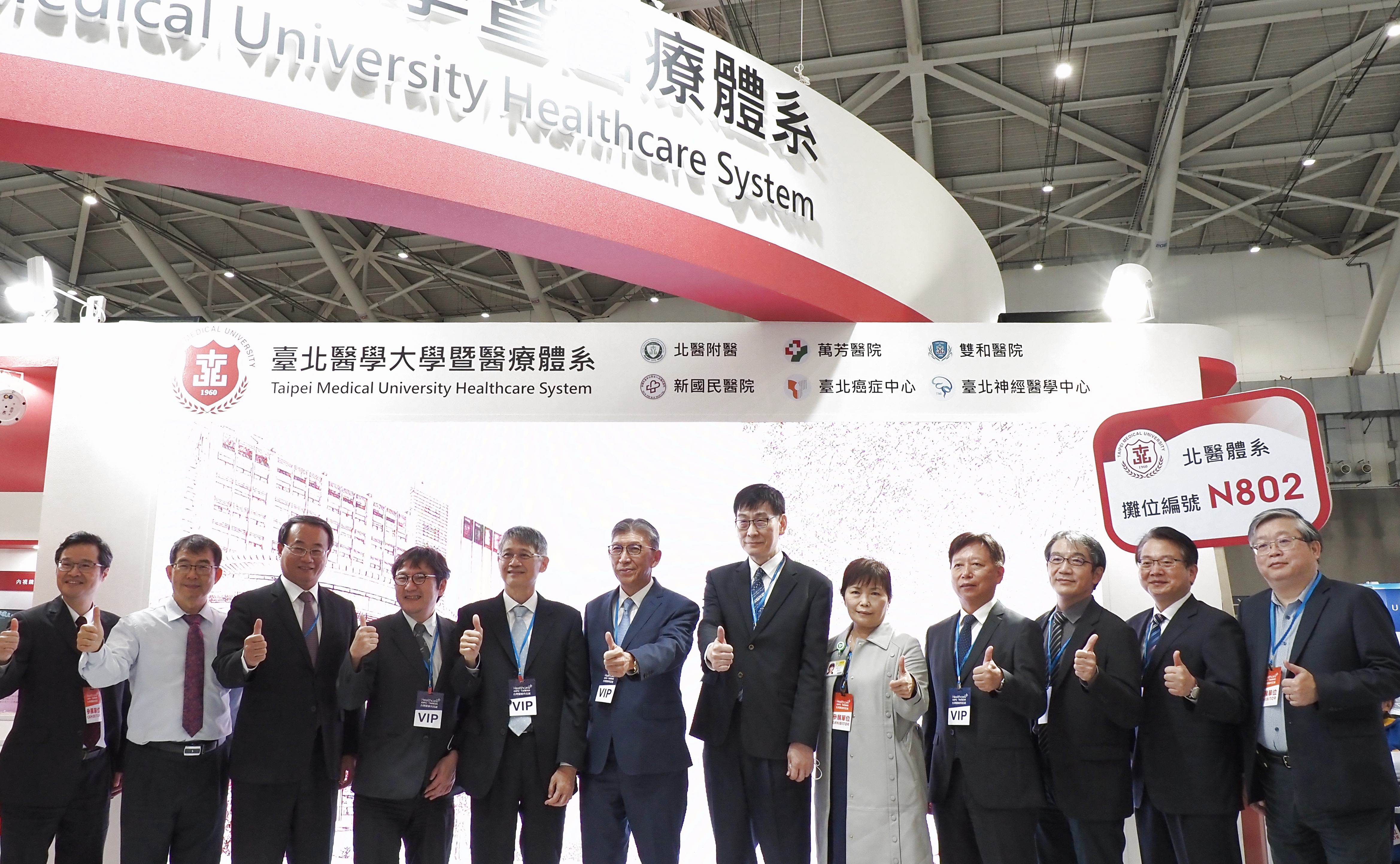
Taipei Medical University calls for prospective partners with interest in AI, digital health and medical devices (Photo by TMU)
Taipei Medical University and Healthcare System (TMU) is more than a tertiary education institution with its teaching hospital. Wearing several hats, TMU provides medical services, propels medtech innovation, and bridges collaboration between academia and industry. The BioMed Accelerator, launched by TMU, is focused on artificial intelligence, digital health and medical devices, and it has seen 18 spinouts since. The Shuang Ho Campus, which was opened in 2022, channels resources TMU has into this new facility, offering a one-stop shop for R&D, clinical validation, business development and marketing.
Here’s more invented and pioneered by TMU.
DeepBrain-Cognito: Mapping Brain MRI to Dementia Risk
DeepBrain-Cognito is a personalised 4D, AI-powered prediction tool, using a multi-module platform and an individual’s most recent MRI images to display in 4D where regional brain cortical thinning may begin in the future. The tool serves to suggest when dementia could occur with clinical dementia rating (CDR), as well as the types of dementia to which the CDR refers. For people whose health is close to optimal, it can be valuable to identify and act on underlying dementia risks early.
The prediction model is the first case having CVAE-GAN at its core, coupled with tens of thousands of brain MRI images sourced from a large dementia database, which enables its ability to simulate variations amongst individuals under different conditions, and indicates dynamics that might appear in the brain at any given time.
TMU looks to expand this project with AI developers and software-hardware integrated solution providers, in areas of dementia prevention and assisting pharmaceutical companies with recruitment for dementia clinical trials.
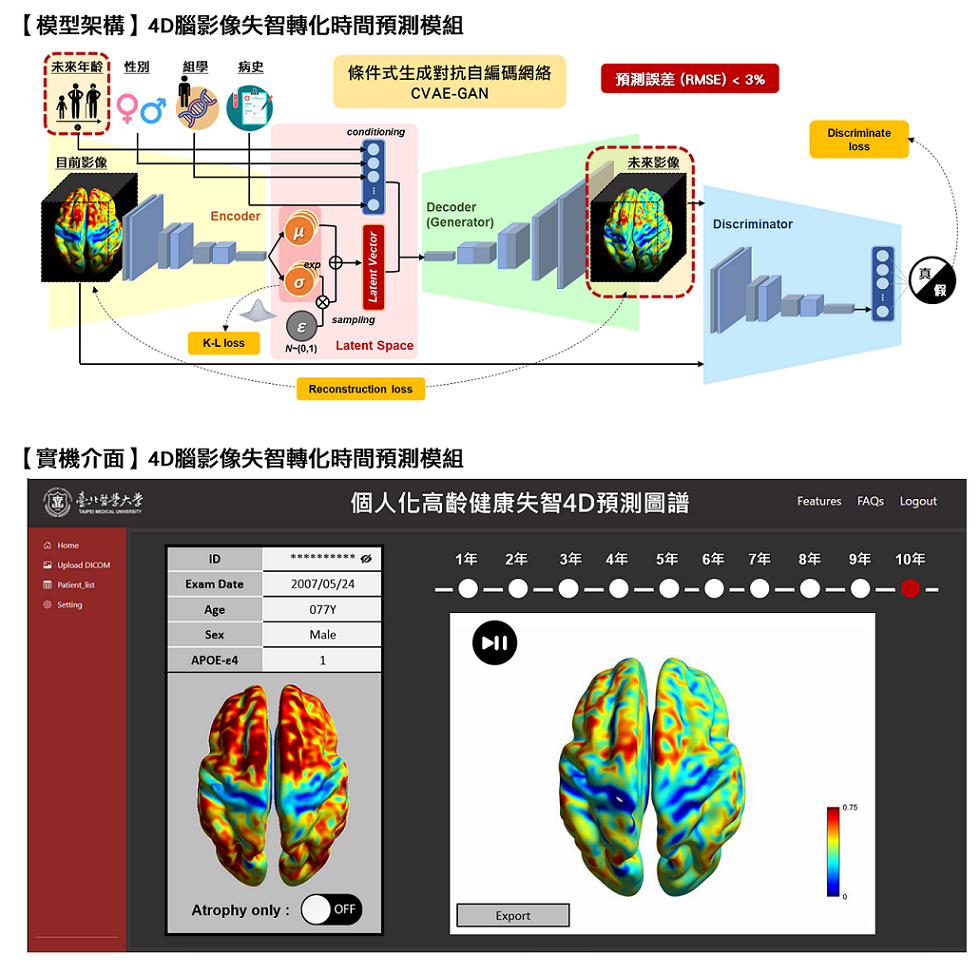
DeepBrain-Cognito with 4D brain images, a prediction model for dementia risk in a few years to come (Photo by TMU)
InsightEyes EGD System: World's First Magnetically-Controlled Capsule Gastroscopy
Gastric cancer sits top 10 in Taiwan, where diagnosis is delayed due to a reluctance to accept gastroscopy. Alternatively, one can opt for capsule endoscopy which eliminates discomfort during the examination, but the downside cannot be neglected either- low battery, camera malfunctioning, or underlying lesions not being detected.
Nevertheless, TMU has struck a balance in between- by introducing magnetically-controlled capsule gastroscopy. Its proprietary InsightEyes EGD System comes with a capsule camera and a probe, allowing the capsule to be held in position whilst inspecting the digestive tract thoroughly.
On top of its features is that TMU’s gastroscopy accelerates real-time communication between doctors and patients. The InsightEyes EGD System is the first of its kind in the world, with 43 patents filed, now seeking more marketing approvals and establishing its distribution network worldwide.
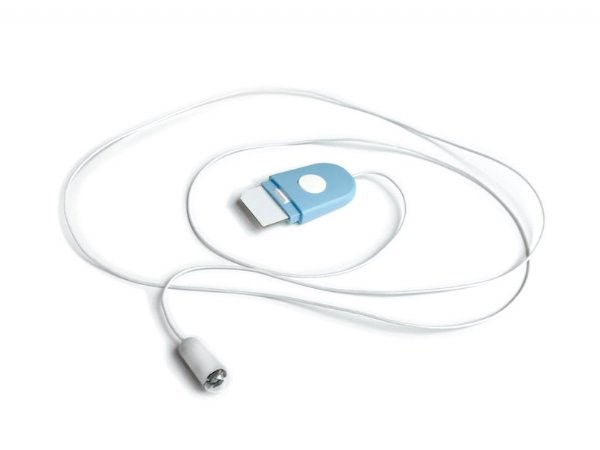
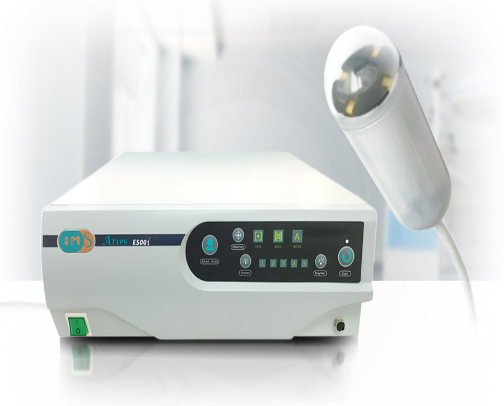
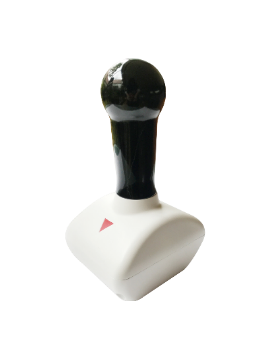
World’s first magnetically-controlled capsule gastroscopy (Photo by TMU)
ACE: AI-assisted System for Acute Kidney Care
Taiwan has the highest prevalence of dialysis in the world, hence the importance of slowing the progression of kidney diseases. TMU’s Shuang Ho branch has developed the “ACE”, a comprehensive AI-assisted system that remotely monitors patients with acute kidney injury (AKI), chronic kidney disease (CKD) and end-stage kidney disease (ESKD).
As part of ACE, the "AKI Alert System" and the "AKD Tracking System" automatically identify AKI/AKD patients using algorithms and an archive- both systems will constantly track these patient cohorts thereafter. Adding to the ACE is the "CKD Map", which quickly identifies patients who need close attention. The system normally locates 220 AKI patients and 66 AKD patients each month.
TMU has also introduced the "Haemodialysis Integrated Information System" and "Peritoneal Dialysis Integrated Telemedicine System (PDITS)". that connects dialysis. The former connects data collected from dialysis machines to E-prescribing, whilst the later monitors at-home care with medication adjustments where necessary.
Not only can ACE enhance renal care, this decision-making support system also amasses valuable datasets for further studies on the progression of kidney disease. ACE is not limited to use in healthcare facilities, but also in primary care clinics.
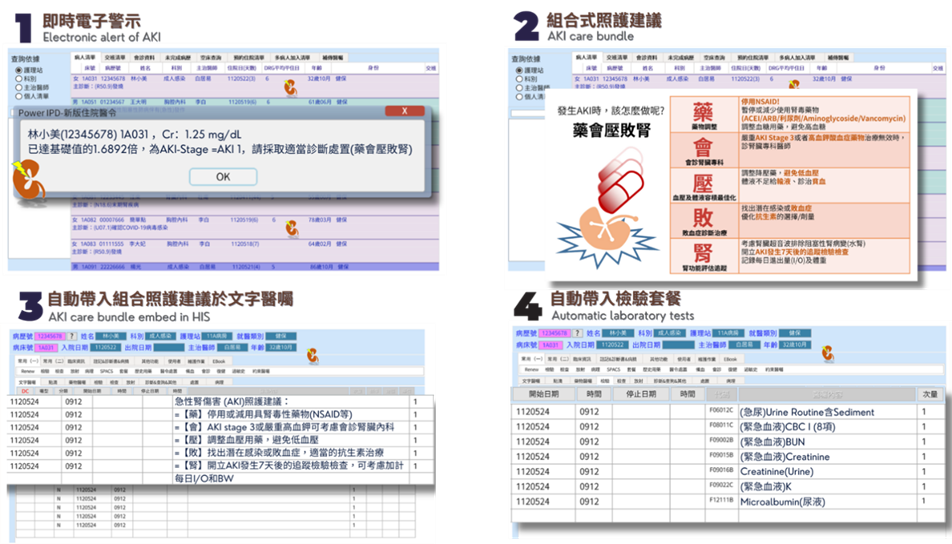
ACE alerts automatically acute kidney injury cases (Photo by TMU)
★★★More by Taipei Medical University and Healthcare System
◎Neurorehabilitation with Augmented Reality
People with neurological disorders often experience disability and barriers to daily living, yet their motivation to rehabilitate could be dampened by repetitive, tedious exercise. Studies conducted abroad have shown that audio-visual stimulation can improve the mobility of people with neurological disorders. Augmented Reality (AR) offers more realistic feedback than Virtual Reality (VR), providing a more authentic interaction with the real world and a more immersive experience.
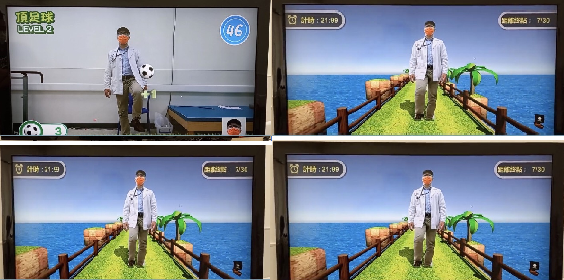
AR in neurohabilitation increases level of participation amongst people with neurological disorders (Photo by TMU)
The AR-based training system developed by TMU has several key features: Firstly, most products on the market are game-oriented, with limited AR elements; secondly, TMU's system is designed with rehabilitation science, motor control and learning in mind; thirdly, TMU is committed to the scalability of the training system with a team consisting of healthcare professionals and based on user feedback. What's more, the system can be accessed remotely and has been patented and recognised by the National Innovation Award.
In addition, the team is planning yet another system aiming at recognition training for neurological conditions in the hope of helping more people with neural diseases. TMU is currently in discussions with software developers and distributors for technology licensing and commercialisation of the said system domestically and overseas.
◎MoleMe: AI-assisted Risk Assessment for Abnormal Moles
Skin cancer is amongst the top 10 cancers in Taiwan due to the absence of screening. Individuals are generally unaware of skin cancer until symptoms such as local protruding nodules or scaly patches have appeared. Research has found that some skin cancer tumours develop from moles. In order to raise awareness of the underlying risk of skin cancer, TMU’s Wanfang branch has introduced "MoleMe", a mobile app that provides assessments of whether moles signify any risk of skin cancer, aiming to facilitate high-risk cancerous spots on the skin to be diagnosed and treated.
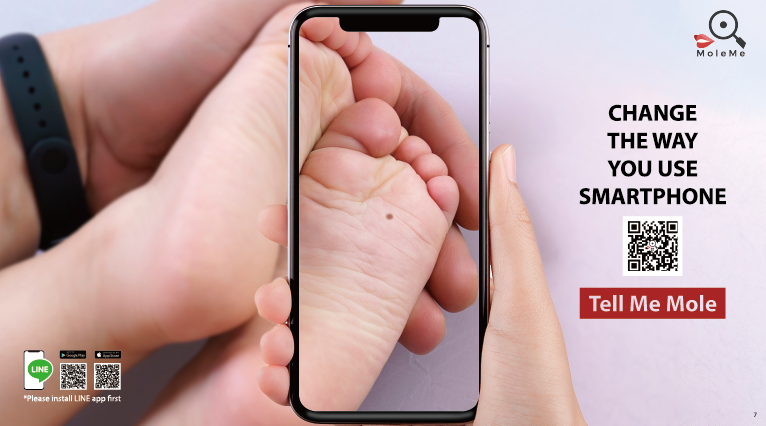
MoleMe app identifies whether moles could be cancerous (Photo by TMU)
◎AI Imaging Platform Improving Ischemic Stroke Prognosis
In the management of acute ischemic stroke, early detection of the infarct core and prompt treatment are paramount. Duali Hospital utilizes cutting-edge artificial intelligence deep learning technology to establish an image platform that rapidly and automatically segments the brain's magnetic resonance imaging, determining the volume of the stroke core lesion and its location within the brain. Furthermore, it integrates seamlessly with the hospital's information system, enabling clinical physicians to receive accurate SMS notifications about the size and location of the stroke core within 3 minutes of the examination of acute stroke patients. This innovation aims to expedite the treatment process and improve the prognosis of stroke patients.
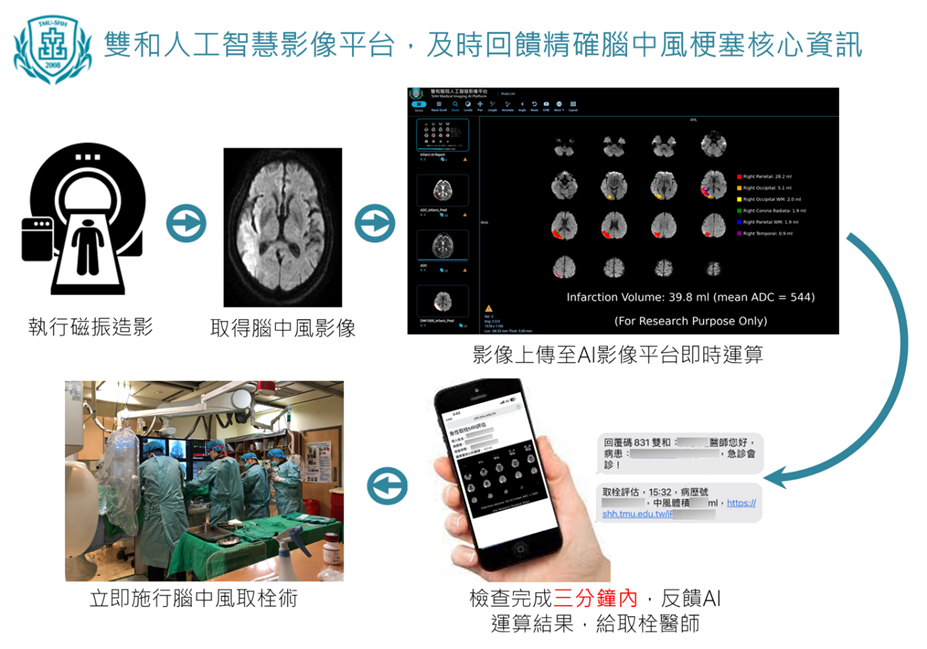
TMU Shuang Ho demonstrates its AI platform for the diagnosis and treatment of ischaemic stroke (Photo by TMU)
B2B Opportunities with Taipei Medical University & Healthcare System
AI in Healthcare
| Products/Solutions | Partnership wanted |
|---|---|
| DeepBrain-Cognito: Mapping brain MRI to dementia risk | Venture capital/investment |
| Neurorehabilitation with augmented reality | Innovation collaboration |
| AI imaging platform for ischemic stroke diagnosis and treatment | Technology transfer; product development |
Digital Health
| Products/Solutions | Partnership wanted |
|---|---|
| ACE: AI-assisted system for acute kidney care | Licensing |
| MoleMe: AI-assisted risk assessment for abnormal moles | Technology transfer |
Innovative R&D
| Products/Solutions | Partnership wanted |
|---|---|
| InsightEyes EGD: World's first magnetically-controlled capsule gastroscopy | Procurement |
| The BioMed Accelerator | Call for startups |
Taipei Medical University and Healthcare System at Healthcare+ Expo 2023
- Thursday, 30 November to Sunday, 3 December
- Booth No. L818 | 4F, TaiNEX 1
